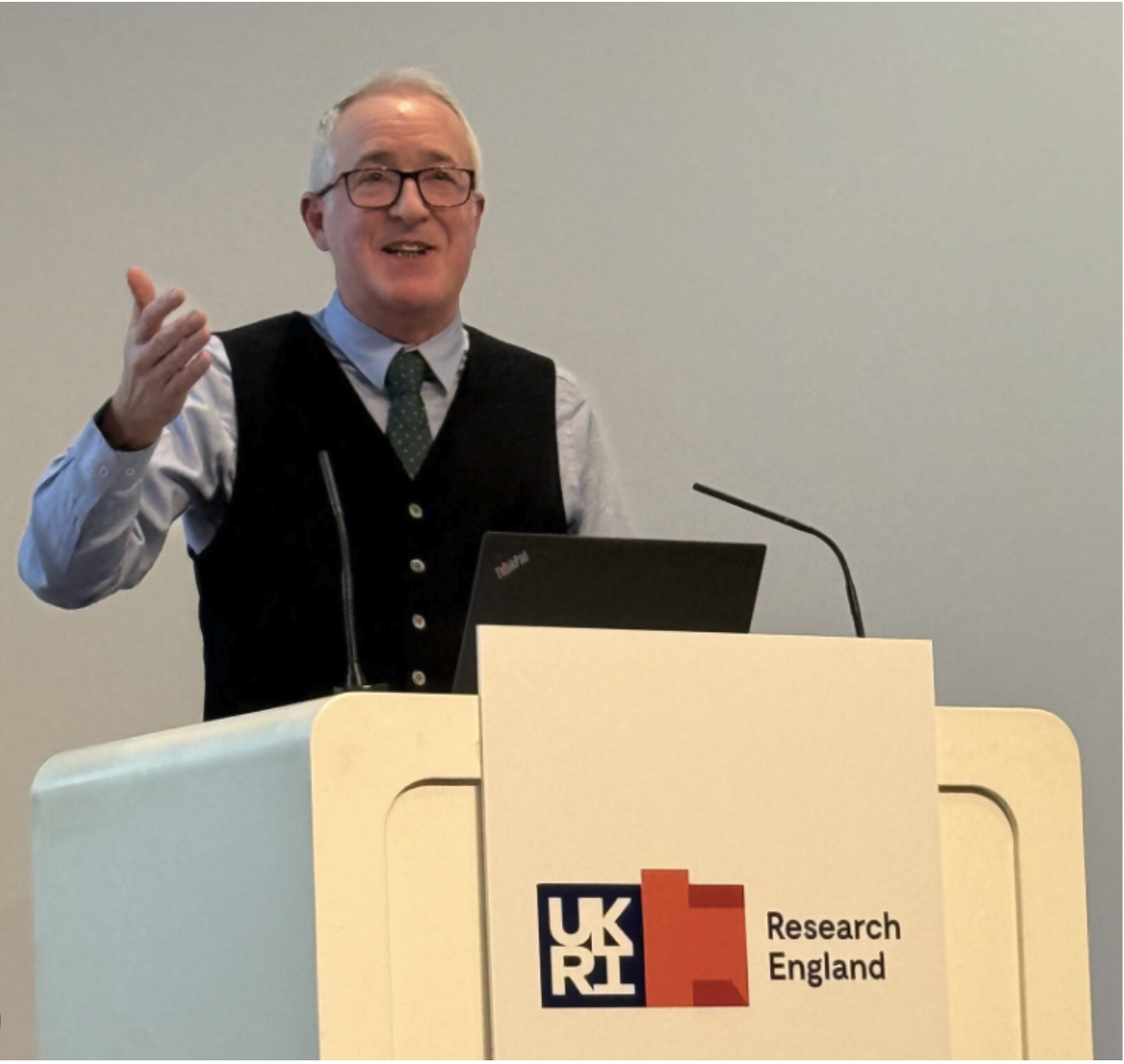The AI Advantage: How TTOs Can Get Ahead of the Curve
Earlier this autumn, TenU brought together 50 tech transfer professionals from across the globe for a peer learning event on artificial intelligence.
The second TenU Operational Symposium, hosted by Cambridge Enterprise, revealed that technology transfer offices are moving rapidly from AI experimentation to strategic implementation—but success depends on creating the right organisational conditions and peer support networks.
Creating an AI-Enabled Organisation
The most significant insight came from Cambridge Enterprise's "Coach-Athlete" model, which reframes AI adoption as an active learning journey rather than a technical rollout. Instead of mandating specific tools, the model supports staff to explore, experiment, and share what works. This approach resonated powerfully with participants, who recognised that cultural readiness matters as much as technical capability. The model offers a practical framework for offices looking to move beyond pilot projects to genuine organisational transformation.
From Automation to Augmentation
Participants shared applications across the full spectrum of tech transfer work: automating patent summarisation and due diligence processes, generating targeted marketing communications, and enhancing opportunity assessment. What emerged was a shift in thinking — from viewing AI as a tool for efficiency gains to seeing it as a way to augment professional judgement. Columbia Technology Ventures' work on CRM-integrated AI and prompt engineering demonstrated how AI can enhance rather than replace the expertise that defines our profession.
The Power of Structured Prompting
A key practical takeaway was the importance of prompt engineering. Well-crafted prompts can transform AI from a novelty into a reliable professional tool. Participants left with a curated Prompt Library designed to support immediate experimentation—providing tested frameworks for common tech transfer tasks whilst encouraging adaptation to local contexts.
Peer Learning as Competitive Advantage
Perhaps the most valuable outcome was the formation of four international peer learning groups committed to ongoing collaboration. These networks recognise that in a rapidly evolving field, collective learning outpaces individual experimentation. The willingness to share not just successes but challenges and failures created an environment of genuine knowledge exchange—a reminder that relationships underpin innovation.
Looking Ahead
The overwhelming sentiment was clear: AI is moving fast, and staying ahead requires both technical experimentation and strong peer networks. The event demonstrated that tech transfer professionals are ready not just to adopt AI, but to shape how it transforms our sector.
We extend our sincere thanks to the facilitators whose expertise and commitment shaped this online symposium. Paul Seabright, Ian Everett, Declan Weldon, Dalton Lee, Michelle Zappala-Wood, Ananay Aguilar and Rupert Friederichsen brought a remarkable depth of knowledge and a spirit of collaboration that enabled participants to explore AI with clarity and confidence.
As ever, TenU aims to share effective practices in university innovation by bringing together leading technology transfer offices from around the world.




